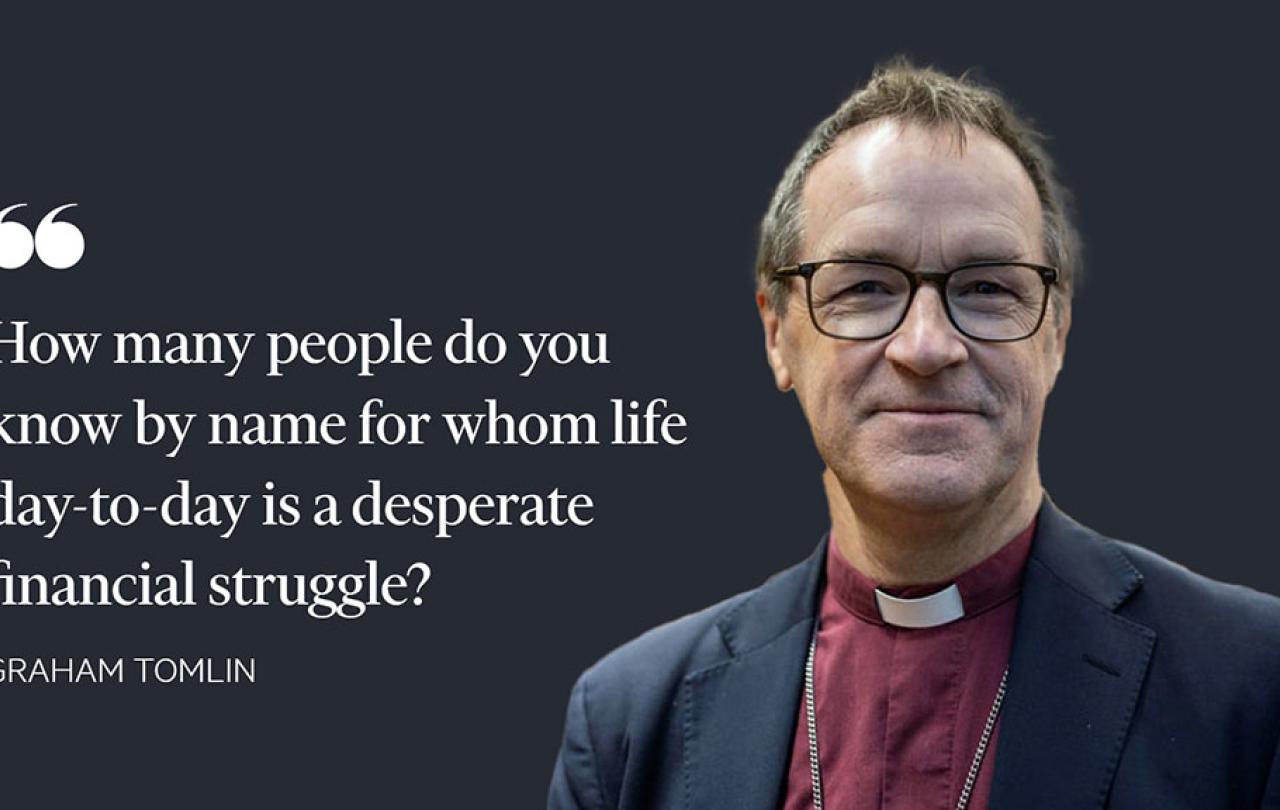
I've just come back from the USA. A few days on the east coast was a chance to take the temperature of America after its recent election, a brief impressionistic sense from conversations, reading the runes – and the blogs. In short, I had heard much about the divided state of America. I didn’t realise quite how divided it was.
America has always made a great deal of unity. The vision for the USA imagined immigrants from different nations across the world invited to forge a new life in a new continent, leaving behind the divisions of the old world. It was the coming together of varied States across the vast continent into one Union. The language is everywhere. Most cities have a ‘Union Square’, Street or Turnpike. The chosen name itself was the United States of America. The slogan E pluribus unum – “out of many, one” was first featured on the original 1776 design of the Great Seal of the United States and formally adopted by the U.S. Congress as the nation's official motto in 1782. The American civil war of the nineteenth century was such a trauma for the nation precisely because it threatened that union. “One nation under God” says the pledge of allegiance, recited by every American child. Yet today it feels that a more realistic description would be two nations under God. The Disunited States of America.
The split is pretty even. 73.7m people voted Democrat. 76.4m voted Republican. That itself is no great cause for alarm. What does cause alarm is the utter divide between the two groups. New York, for example. is pretty solidly Democrat. Someone who voted Trump told me they would never admit to it publicly because of the public shame it would bring. The same is true in the red states. To admit you voted Democrat in some Southern Baptist churches in Texas would be to invite social ostracism. Many Evangelical pastors who have their doubts about Trump have to keep quiet otherwise they would lose the support of their congregations and quite possibly their jobs. As a result, the only Evangelicals that tend to criticise Trump will be academics or journalists who have little to lose.
As a taxi driver joked, if a young Democrat goes out on a date with someone they've met on Tinder, and discover their partner voted Republican, there is unlikely to be a second date. A Christian visitor centre in Washington DC tells me that they are looking forward to Trump being President again, because the flow of evangelical Republicans visiting the capital dried up during the past four years as they felt it was Biden’s town. It’s well known that nearly 80 per cent of white Evangelicals voted for Donald Trump. Such families were more likely to come to DC to see the seat of government if they knew ‘their guy’ was in the White House.
It seems that in the current version of the USA, who you voted for is the number one identity marker. And the two groups rarely talk. In New York I preached in an Episcopal church. The Bible readings for the day spoke of ‘wars and rumours of wars’ – ‘everything will be thrown down’ – apocalyptic texts that invited me to talk about the election in the light of Jesus. Beforehand I asked the Rector what the voting pattern of the church was. “It’s genuinely purple” he said – “a mix of red and blue, Republican and Democrat, Trump and Harris. At least here they do talk to each other.” That seemed a rare thing in this deeply divided country.
Jesus once said: “Every kingdom divided against itself will be ruined, and every city or household divided against itself will not stand.” Trump may well fix the economy and illegal immigration. Yet such deep division, especially in a nation whose identity rests of unity is perhaps a more existential threat.





